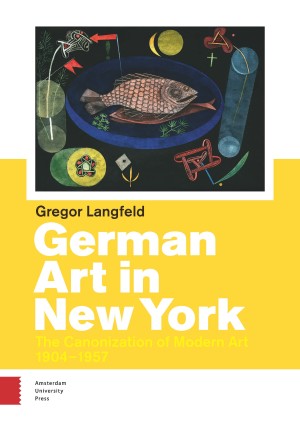Why did the Museum of Modern Art and the Guggenheim in New York, and art collectors and curators such as Katherine Dreier and Alfred Barr, collect modern German art in the first half of the twentieth century? And why did certain works of art belong to the canon while others did not?
In this book, Gregor Langfeld argues that National Socialism played a crucial role in the canonization of movements such as Expressionism and the Bauhaus. A role which undermined the post-1945 reputations of many artists associated with classical and figurative trends. Langfeld offers important new insights into the political and ideological motivations behind the New York art world's fluctuations in opinion, fashion, and price.

